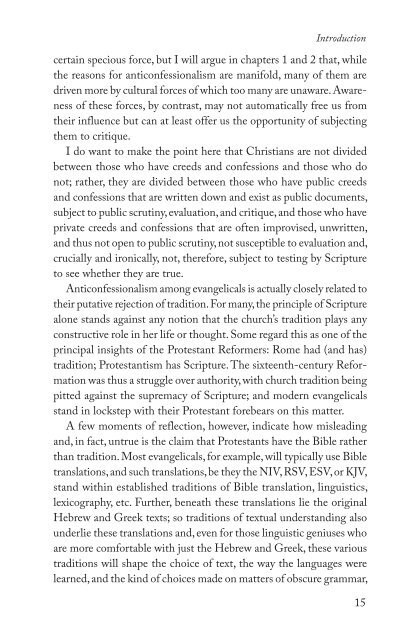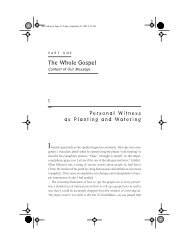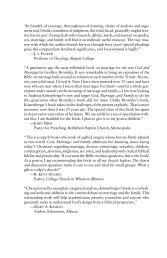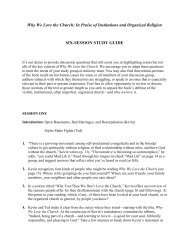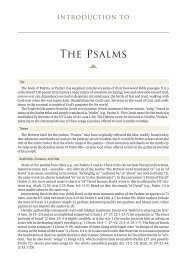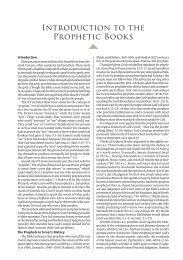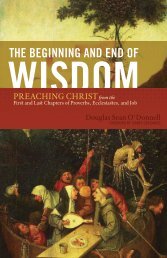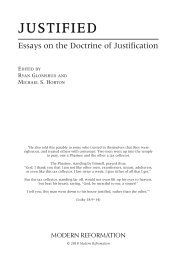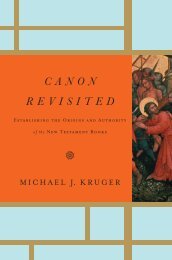The reedal - Monergism Books
The reedal - Monergism Books
The reedal - Monergism Books
Create successful ePaper yourself
Turn your PDF publications into a flip-book with our unique Google optimized e-Paper software.
Introductioncertain specious force, but I will argue in chapters 1 and 2 that, whilethe reasons for anticonfessionalism are manifold, many of them aredriven more by cultural forces of which too many are unaware. Awarenessof these forces, by contrast, may not automatically free us fromtheir influence but can at least offer us the opportunity of subjectingthem to critique.I do want to make the point here that Christians are not dividedbetween those who have creeds and confessions and those who donot; rather, they are divided between those who have public creedsand confessions that are written down and exist as public documents,subject to public scrutiny, evaluation, and critique, and those who haveprivate creeds and confessions that are often improvised, unwritten,and thus not open to public scrutiny, not susceptible to evaluation and,crucially and ironically, not, therefore, subject to testing by Scriptureto see whether they are true.Anticonfessionalism among evangelicals is actually closely related totheir putative rejection of tradition. For many, the principle of Scripturealone stands against any notion that the church’s tradition plays anyconstructive role in her life or thought. Some regard this as one of theprincipal insights of the Protestant Reformers: Rome had (and has)tradition; Protestantism has Scripture. <strong>The</strong> sixteenth-century Reformationwas thus a struggle over authority, with church tradition beingpitted against the supremacy of Scripture; and modern evangelicalsstand in lockstep with their Protestant forebears on this matter.A few moments of reflection, however, indicate how misleadingand, in fact, untrue is the claim that Protestants have the Bible ratherthan tradition. Most evangelicals, for example, will typically use Bibletranslations, and such translations, be they the NIV, RSV, ESV, or KJV,stand within established traditions of Bible translation, linguistics,lexicography, etc. Further, beneath these translations lie the originalHebrew and Greek texts; so traditions of textual understanding alsounderlie these translations and, even for those linguistic geniuses whoare more comfortable with just the Hebrew and Greek, these varioustraditions will shape the choice of text, the way the languages werelearned, and the kind of choices made on matters of obscure grammar,15


